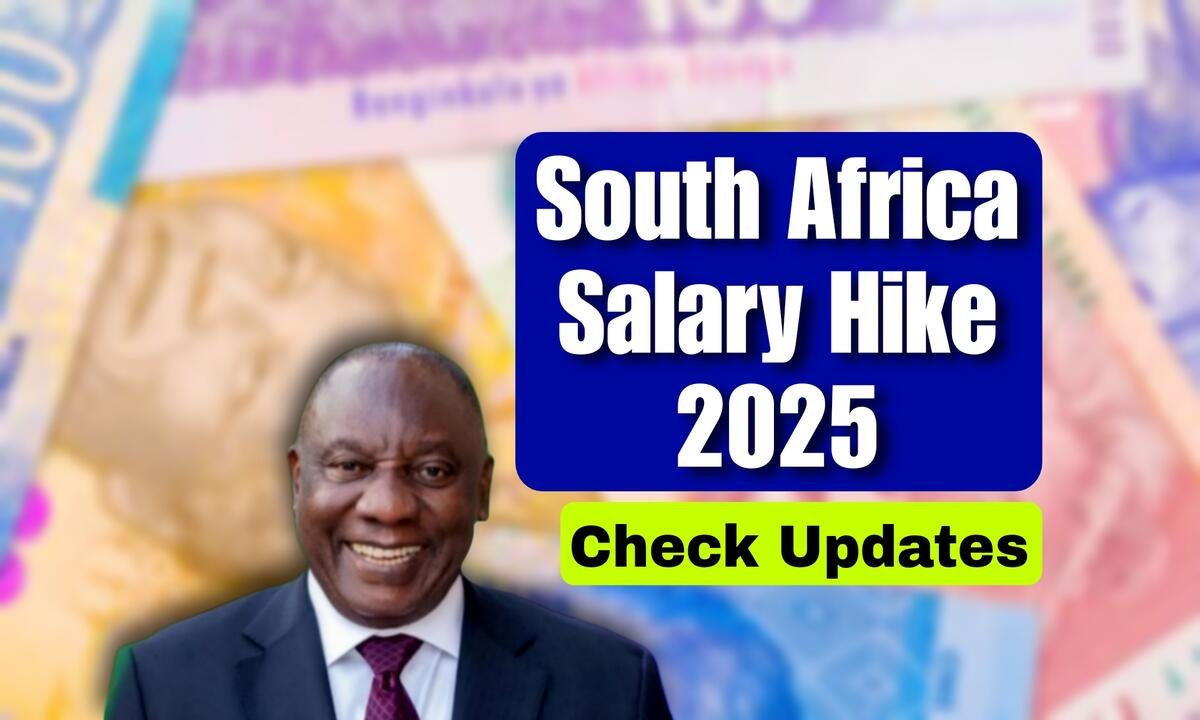South Africa Salary Hike 2025 :Come April 2025, South Africans have something to cheer about, salary increases are rolling out in several sectors. To enable employees to cope with rising living costs and inflation, both government and private companies have rolled out new pay structures. So, if you’re wondering whether you are getting a raise in your paycheck, here is everything you need to know concerning the new pay adjustments, average salaries, and eligibility.
What’s Going To Change In April 2025?
The April 2025 salary revision can be regarded as one of the more intense pay scale evaluations in recent times. This hike in salaries across the country is being heralded as a necessary intervention by the government against the emerging economic volatility, weakening of the Rand, the escalation of inflation, and an increasing demand by unions and workers for a fairer wage.
According to the South African Department of Employment and Labour, the intention of these increases is to narrow the wage differentials and enhance the living standards of millions of persons, especially those in essential and mid-wage sectors.
New Average Salary Rates Across Sectors
Here are the revised average salary rates per sector:
- Health care workers : Increased from R25,000 to R28,000 average monthly salary.
- Educators (Public schools) : Salaries are now between R21,000 and R26,500, dependent on experience and qualifications.
- Administrators : The updated monthly average is R17,500, from R15,800.
- Skilled Labourers (Electricians, Plumbers) : Now R22,000 per month.
- Retail and Services : Entry-level jobs start at R8,000, up from R6,500.
- IT and Tech Industry : Professionals in this field could expect an R35,000 average monthly salary, with specialized positions yielding higher.
While these numbers vary slightly per province and type of employer, on a relative basis, they are a generalized increase across the board.
Who’s Eligible For The April 2025 Salary Hike?
An increase may not be immediate for all workers. So who falls in that category?
- Full-time employees: All full-time employees in the public and private sector will be granted this wage increase, especially those who are part of collective bargaining agreements.
- Workers in sector-specific industries: Employees working in sectors affected by the national minimum wage changes or regulated salary scales.
- Workers on contract or fixed-term contracts: If your contract extends for more than six months, you may also be eligible for an increase proportionally.
- Minimum-wage earners: Workers being paid below the new national minimum wage will be due for some compulsory increase.
The national minimum wage has now moved up for 2025, with the hourly rate being R27.58 against R25.42 in 2024, sending clear signals by the government to alleviate poverty and encourage financial stability for the working people in the country.
How Do You Check For Updates In Your Salary?
In the event that there are uncertainties around your revised pay:
- Speak to your human resource department or payroll officer
- Refer to your employment contract for any reference to clauses on annual adjustments
- Check also for sectoral determinations in the Department of Employment and Labour
What This Means To The Workers
This salary increase is not merely a number; it is an indication of South Africa’s commitment to improving labor conditions. This extra income means so much to millions of workers, especially those with families who might benefit from an ease in financial pressure.
As the companies will be making adjustments in payroll during April and May of 2025, it will be good to stay informed, keep vigil on your payslips, and set out the issues if increase has not been applied correctly.
Also Read: South Africa Says Goodbye To Licence Cards And Discs: Here’s What’s Next
